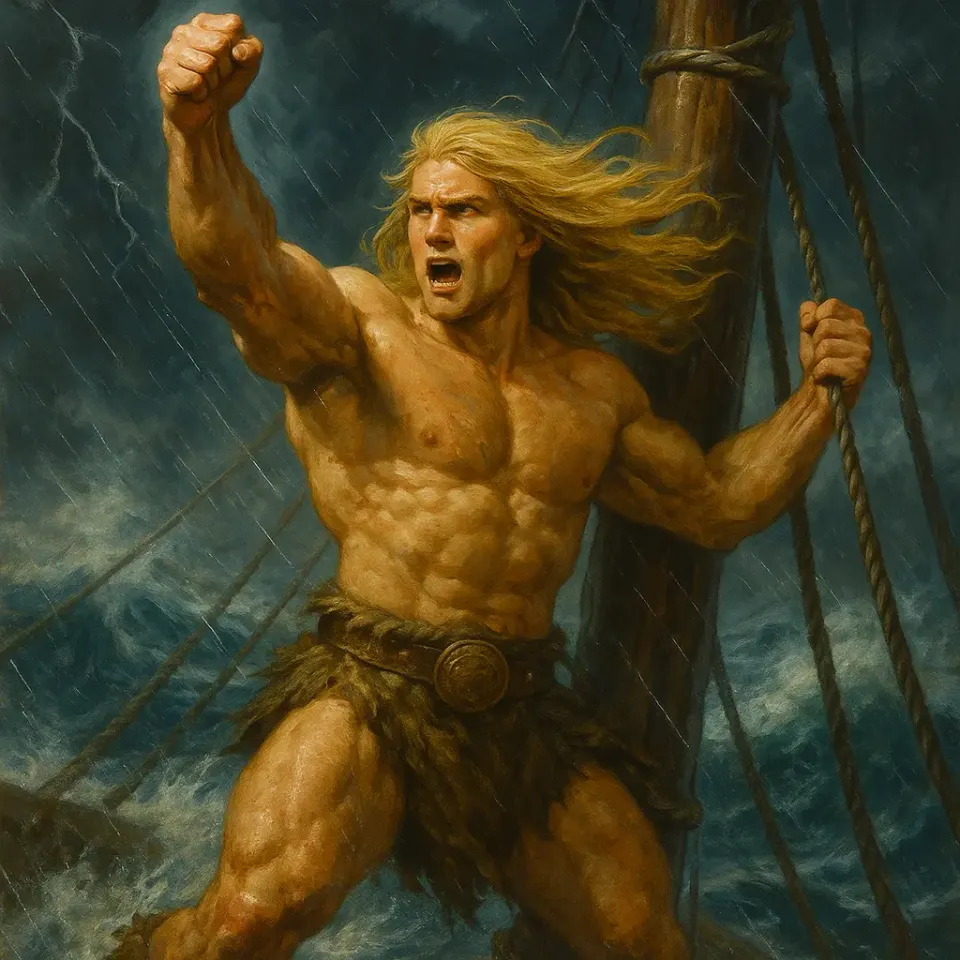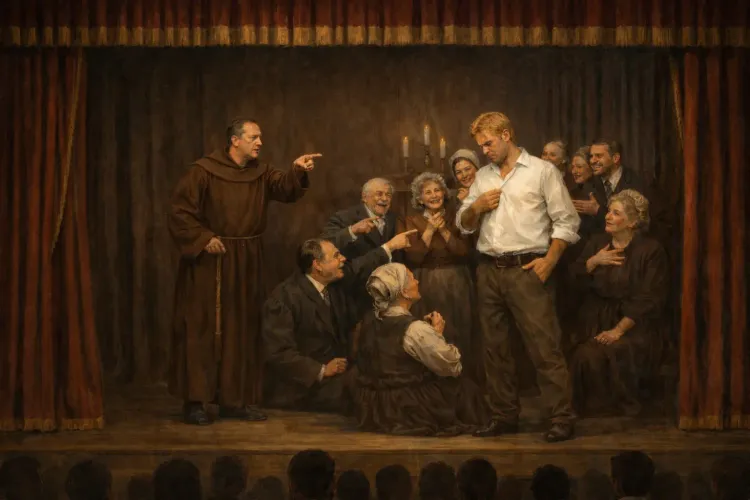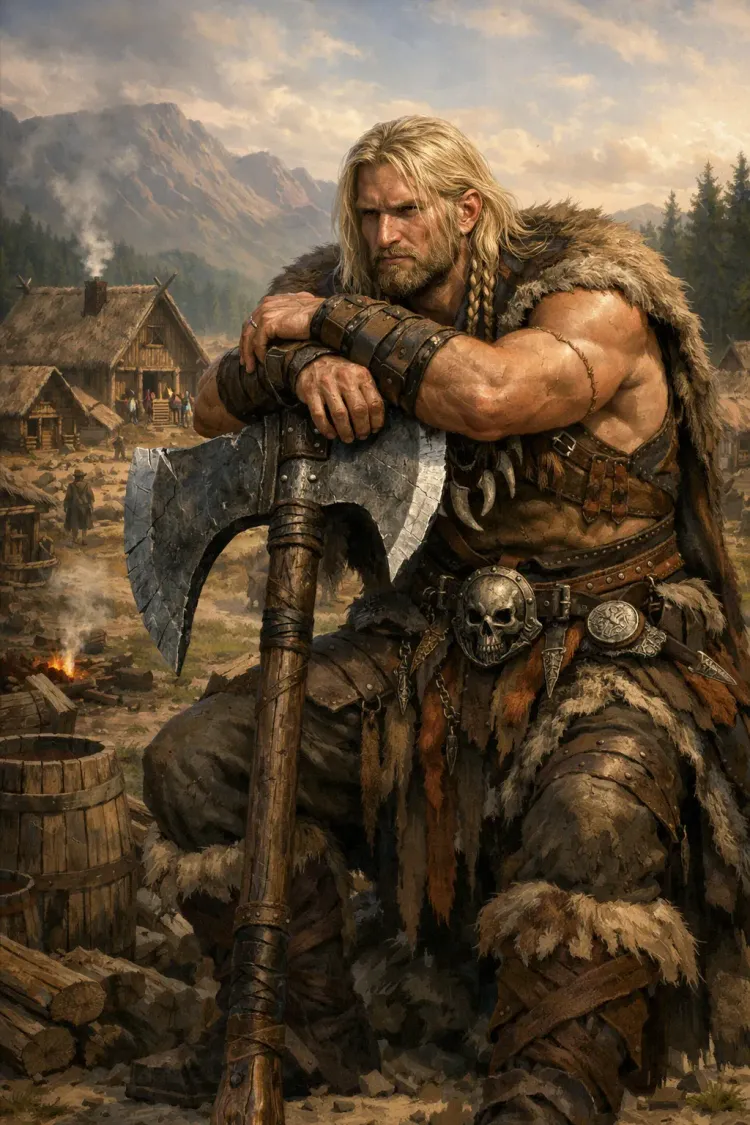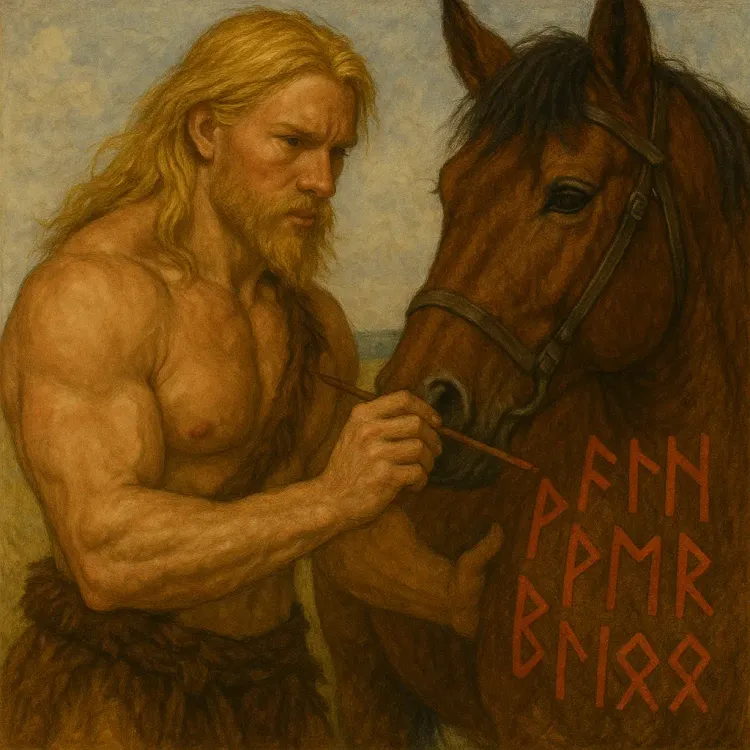Reclaiming the Sovereign Throne of the Soul

Sovereignty is the art of seeing clearly. To be sovereign is to stand unclouded by the veils of ideology, superstition, and the comforting myths of weaker men. It is to look upon the world as it is, not as we wish it to be, and to look upon oneself with the same ruthless clarity. Sovereignty is thus the highest expression of truth-seeing. The power to understand what one is, that one might become what one must.
We stand today at the end of thousands of years of inherited stories. The libraries of civilization overflow with myths, creeds, philosophies, and moral codes. And each makes assertions, often subtly, about who and what we are as men. Assertions about who and what we ought to be as men. Our stories tell us what it means to be a "good" man and what it means to be "bad". Some of these are fragments of truth; others are the deliberate opiates of servitude. The sovereign man must discern which are which. For to live by lies, even beautiful ones, is to forfeit one’s dominion over reality.
It is easy to expose the grossest fabrications. A man who mutilates his body and calls himself a woman has waged war against the very nature that bore him. Such madness cannot persist against the harsh wall of nature and reality. Transgenderism, as it festers in the modern world, is not merely error; it is rebellion against the order of being itself. It is anti-nature, anti-human, and anti-sovereign. For one cannot govern oneself if one denies what one is. Yet this lie, grotesque as it is, is only the surface-level, obvious manifestation of a deeper sickness. Beneath it lie subtler fabrications that have wormed their way into our civilization for centuries.
What does it mean to be good? We repeat the word as if it were obvious, yet few ever examine what it truly entails. Should not the good be that which harmonizes with our nature, strengthens it, builds upon it, and elevates it toward a noble expression? The good is that which brings our being into resonance with the deeper law written into flesh and blood,. It is that which tunes us to the rhythm of life’s order and expands our capacity for mastery of that order. Then the good cannot be that which opposes our nature, shames it, or seeks to replace it, for that would sunder us from the source of vitality itself. To build the good and the beautiful, one must first regard one’s own nature as a foundation worthy of construction. As something fundamentally sound and vital, a stone upon which greatness may be built rather than a flaw to be burned out.
But what if one begins from the opposite premise: that man is wicked by nature, fallen, corrupt to the core? What follows from such a creed? Can a man who believes himself vile ever act with confidence, ever build with faith in his power? Greatness cannot be raised upon a foundation of rot. The man who believes himself cursed cannot create, cannot conquer; he can only repent and await deliverance. To declare man’s nature evil is to poison the root of his strength, to cut the sapling before it ever touches the sun. Such a creed disarms the will at its birth. It makes every impulse suspect, every passion a potential sin, every act of creation a trespass against some invisible moral order. A man taught to loathe his own instincts cannot build from them; he will smother the very fire that could refine him. He will live divided, forever suspicious of his own heart, kneeling before ideals that deny his vitality and call it virtue. Thus the belief in one's own corruption becomes a self-fulfilling curse, a spell spoken against the possibility of greatness itself.
From this poisoned root grow the doctrines of submission and despair. If man is corrupt, then no man can be trusted with power. The dream of mastery dies at its conception. One must, instead, yearn for annihilation and for the burning out of one’s own wickedness. If this life is but a valley of tears, and this world the domain of sin, then all deeds within it are worthless save those that renounce it. Greatness, creation, heroism—all must be deferred to another world, another age, another life. Such men cease to strive; they wait. They become content to live as slaves, believing freedom to be the privilege of the pure.
And if all men are corrupt, then they must seek a savior uncorrupted, a figure imagined to stand outside the mire of humanity, radiant in purity and authority. Someone who alone can redeem what they cannot redeem in themselves. They will fall to their knees before any who promise salvation, desperate to be cleansed of what they were told was their very essence. But salvation from what? From their very selves! The tyrant thrives upon this creed of self-loathing. It is the fertile soil from which servitude grows, the field in which chains are sown and watered with guilt. The man who despises his own nature will never rule himself; he will tremble before every voice that claims to speak for his redemption. He will always need another to absolve him, to command him, to save him. He remains forever unfree, a creature ruled by the ghosts of his own self-hatred.
No man can be sovereign who believes himself wicked by birth. He who kneels in self-condemnation cannot stand as king. Sovereignty demands self-belief, and self-belief requires the recognition that one’s nature is fundamentally good, or at least potent, capable, and worthy of development. To see oneself as fallen is to abdicate the throne of the soul.
If this is so, we must ask: where did such a myth arise? Why would any man wish to believe himself depraved and who would deliver such a message of pessimism? The answer lies in the psychology of the weak and the ambitions of the powerful.
The first reason is simple cowardice. Nature is harsh. It demands excellence. It destroys the unfit without apology. The sea does not pity the drowning man; the mountain does not lower itself for the unskilled climber. Nature is no coddling mother, she is a demanding queen, and her favor is earned only through strength. This reality terrifies the timid. They long for escape from the burden of responsibility, from the weight of judgment. They therefore seek gods or philosophies that promise mercy in place of merit, comfort in place of courage, forgiveness instead of growth. They name the harsh mistress of reality the enemy, and they crown as their savior anyone who promises to shield them from her cold dominion.
Others reject sovereignty for a simpler reason: it is easier to be a slave. The sovereign man must bear the responsibility of his destiny. He must face his failures as his own doing. This terrifies the spirit of mediocrity. It is far easier to say, “I am weak,” and place one’s burden at the feet of another. The creed of corruption thus becomes a creed of convenience. “I am fallen,” they say, “so do not expect greatness from me.” They kneel and feign humility to themselves not because they are humble, but because they are afraid to stand.
Finally, there are those who exploit this myth for power. If men can be convinced that they are sick, then the physician may rule them forever. If they can be convinced that they are sinful, then the ruler will never lose his subjects. If they can be convinced that they are corrupt, then the tyrant may justify every chain as medicine for their disease. By convincing men that their very nature is evil, the rulers of this world have secured their thrones for millennia. For a man who despises himself will never rebel. He certainly will never look to himself for leadership.
Perhaps it is all three. Cowardice, laziness, and manipulation intertwine into a single tapestry of servitude. Whatever its origin, the result is clear: the myth of man’s wicked nature has enslaved civilizations. It has robbed them of their will to greatness. It has replaced sovereignty with salvation, mastery with meekness, courage with compliance.
But the sovereign man rejects this. He knows that sovereignty cannot be granted; it must be claimed. No savior can bestow it, for any power received from another can be taken away by the same hand. True sovereignty is self-generated. It rises from within. To be sovereign is to owe no debt, not to gods, not to men, not even to one’s own fears.
Such a man regards himself not as fallen, but as unfinished and unaccomplished. His flaws are not sins, perhaps not flaws at all, but instincts needing to be channeled toward great deeds. His will is not corruption but raw fuel to refine and burn in pursuit of excellence. He does not kneel before perfection as an idol; he pursues it as a conquest. He knows that nature, far from being his enemy, is his proving ground. Her laws are not curses but tests by which he sharpens himself. Her harshness is the forge in which sovereignty is tempered.
The myth of corruption has shaped entire civilizations. The Western mind, in particular, has long labored under this shadow. From the earliest ages of monotheism, the idea of the “fallen man” took root and grew into the moral architecture of the modern world. The notion that the first man sinned and thus cursed all his descendants is among the most destructive ideas ever conceived. It teaches man to despise his origin and distrust his own impulses. It casts creation itself as suspect and life as a sentence to be served. The natural world becomes not a home but a prison; the body not a temple but a trap. And the only escape, we are told, is submission and obedience to the one who claims the power to redeem.
From this doctrine arose empires of guilt. Men built cathedrals not as celebrations of divine grandeur, but as monuments to their own unworthiness. They knelt before altars begging pardon for being alive. The will to greatness was transmuted into the will to confess. The creative fire that once built pyramids and painted heavens was extinguished in the name of humility. Kingship gave way to priesthood; conquest to contrition.
Even as religion waned, the myth persisted. The modern world, stripped of its gods, still worships the same moral lie under new names. The ideology of equality, the cult of victimhood, the worship of weakness; all are descendants of the same ancient poison. They tell man again that he is flawed, that his strength is suspect, that his instincts are dangerous. They too promise redemption, not through prayer but through submission to the collective. The sinner becomes the oppressor; salvation comes not from heaven but from bureaucracy. The myth endures, only the costumes have changed.
To awaken from this dream is to reclaim one’s birthright as sovereign. It begins with seeing clearly. To strip away every comforting fiction and face the world as it is. Nature is not cruel; she is just. Her standards are high because her rewards are real. Life is not a punishment but a grand arena in which to prove oneself. Our desires are not evil but signals guiding us toward vitality. The sovereign does not suppress his nature; he disciplines it. He does not pray for deliverance; he acts for dominion.
The path to sovereignty is neither gentle nor safe. It is the path of the lion, not the lamb. It demands solitude, struggle, and the destruction of illusion. But it is also the path of freedom. For the man who sees clearly, who knows himself, who owes no debt to any myth...that man cannot be ruled. He may lose kingdoms, but not his crown. He may be imprisoned, but not enslaved. His throne is within, and none may usurp it.
And so the question remains: are we destined to slavery or capable of sovereignty? The answer depends on whether we dare to see. Most will not. They will cling to their myths as to blankets in the cold. They will call their chains virtues and their captors saviors. But a few - a rare few - will awaken. They will look upon the world with unclouded eyes. They will see that the gods of guilt were idols, that the doctrines of corruption were lies. They will see that nature is neither good nor evil, but strong, and that they, too, were made to be strong.
Those few will rebuild the world. For only sovereign men can build civilizations. Slaves inherit; kings create. When man ceases to believe he is fallen, he will rise again. And when he rises, the myths of weakness will crumble before him like old cathedrals turned to dust. In their place will stand a new order, not of guilt, but of greatness. Not of repentance, but of conquest. The age of sovereignty will dawn again, and with it, the restoration of man to his rightful dominion over himself and his world.





